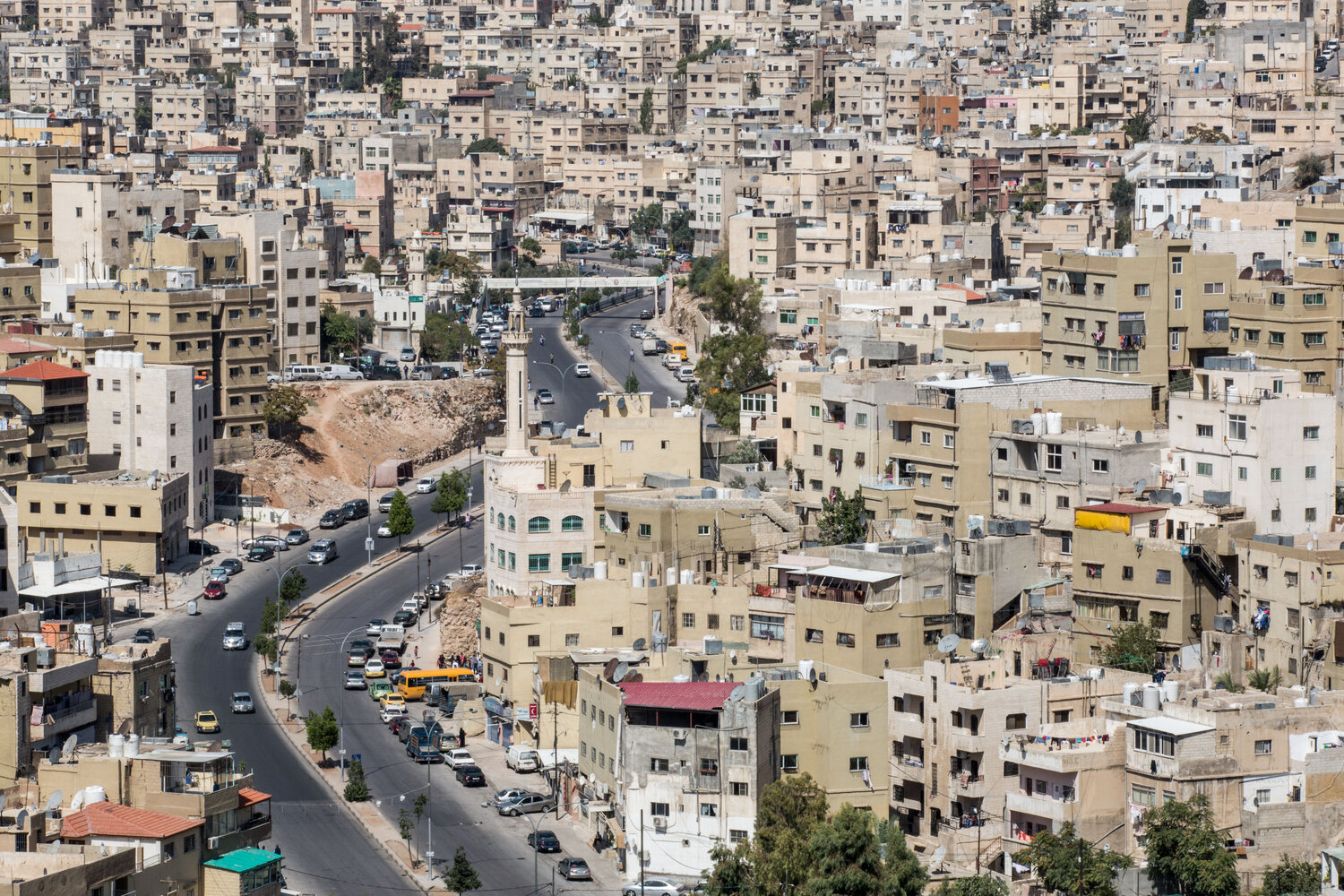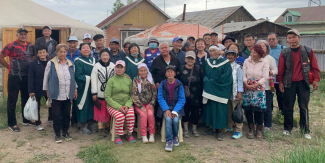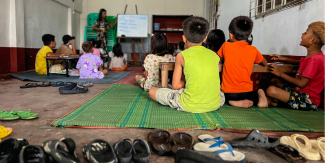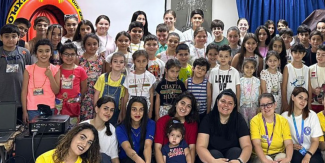If you’re reading this article, then the chances are that your life was transformed by a Middle Eastern refugee—a child refugee. A child refugee wrapped in swaddling clothes and carried across a desert by his mother. That first Christmas—a story of hope, deliverance, and God’s redemption—is also a story of persecution, displacement, and a dangerous crossing. It is the story of a family filled with fear, fleeing their home in search of safety.
For the last eight years, millions of people fleeing violence in Syria and Iraq have sought safety in nearby countries. The needs of these displaced people are overwhelming—many go without sufficient food, shelter, medical care, or educational opportunities. Fleeing homes, leaving loved ones, and entering a life of scarcity and uncertainty is deeply traumatic. Perhaps for the first time, parents are unable to meet the basic needs of their children or exercise control over their own lives.
It is in this context of scarcity and uncertainty that more than 10 Nazarene churches across the Middle East have been actively serving more than 10,000 displaced people who have arrived in their communities. This ministry is holistic and includes everything from providing education to the distribution of food to families without the means to meet their own nutritional needs. Omar*, the pastor at one of the churches, says that it is their ministry is based in practical love.
“Any need the family faces, they run to the church, and we stand with the families,” he says. A few years ago, one church’s ministry team became aware of a mother with three daughters who lived together in one room. In winter, the city could reach temperatures below freezing, but the family had only one blanket. The woman’s husband had left, and she was only able to earn enough money for a little bread and falafel every day. After meeting them, the volunteers returned quickly with blankets, a refrigerator, a mattress. “Whatever was available,” Omar’s wife, Lian, says. Omar says the woman and her children were completely shocked.
That was a year and a half ago. A donor from the church decided to sponsor the girls’ education, and the whole family attends the church regularly. “When we love someone, we need to show [him or her] practical love,” Omar says.
“Because we believe these three important values– we built our ministry upon these values: love my people, respect my people, and serve my people,” he adds. “Everything starts with these three values.”

SEEING GOD
Meeting daily needs, as they did with the mother and her daughters, is an important part of the church’s ministry. With armed conflict still ongoing, the churches recognize the necessity to offer support that will have a long-term impact. So at regular intervals, church volunteers procure food items and assemble household food packages with staples to distribute to families in need. Some churches also provide hygiene and personal care items, and still others help with medical costs. In an effort to seek long-term aid, churches are also providing vocational training and language classes, enabling people to gain new skills, build self-confidence, and find work when they are resettled in host countries. Other churches care for those experiencing trauma through counseling services and regular support, recognizing that psychological well- being is an essential part of coping with stress.
Caring for children also remains a priority for the Church of the Nazarene, and the Nazarene schools in the Middle East continue to offer quality education in a safe and nurturing environment. The schools exist to serve families living on the margins. In recent years, these schools have taken in many displaced children who have lost years of education because of war and conflict.
“When we love someone, we need to show [him or her] practical love...”
— Pastor Omar
In one family, a brother (10) and sister (12) started showing up at one church’s playground, which is regularly open as a ministry to families. When church members realized they were there every day, they reached out and learned that the mother of the children worked late. She had told them the church was a safe space.
At the time, the boy was struggling with chronic pain and nearly constant stress from the trauma the family endured. Omar says that over the course of several years, the family began attending church as congregants, too. Now, both children attend one of the Nazarene schools regularly.
He has also been healed of the chronic pain he used to experience. Currently, more than 150 displaced children are enrolled in the Nazarene schools, where they are served by staff members who love them and long to see them succeed.
While activities from church to church may differ, all of the churches extend love and kindness. It is clear that they recognize the great truth that all people are cherished by God. “We cannot stop the flow right now, but we hope that the Nazarene global church can form a system that can welcome these refugees,” Lian says.
The demands are often greater than the resources, but the churches continue to serve others and open their doors however they can. Ending their support for refugees is just not an option. For as Jesus said, “Truly I tell you, just as you did it to one of the least of these who are members of my family, you did it to me.” It’s not hard to see God in each and every refugee. After all, Jesus was one, too.
NCM is committed to continuing to support the needs of displaced people in the Middle East and around the world. To learn more or give to support these ministries, please visit our website.
Taken from the latest issue of NCM Magazine. Read more here.
*All names are either removed or changed for protection.






Add new comment